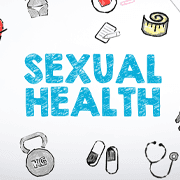Your Guide to Sexual Health Screening and Preventive Measures
In This Article
Your Guide to Sexual Health Screening and Preventive Measures
Jaymala
Updated on December 09, 2023
Medically verified by Dr. Arya
Fact checked by Dr. Pournami

Wellness
10mint
Overview
Sexual health screening is a proactive and responsible approach to maintaining one's sexual well-being. It involves a series of tests and examinations to assess and detect sexually transmitted infections (STIs) or other potential issues related to sexual health. The specific tests can vary based on factors such as age, sexual activity, and individual risk factors.
Types of Sexual Health
Physical Health:
This includes the absence of sexually transmitted infections (STIs) and reproductive health issues. Regular check-ups, screenings, and access to contraception are essential components of physical sexual health.
Reproductive Health:
Reproductive health is a crucial component of sexual health. It involves aspects such as fertility, family planning, and the ability to have safe and satisfying sexual experiences throughout the reproductive lifespan.
Emotional and Mental Well-being:
Emotional and mental well-being is integral to sexual health. This involves having a positive and respectful attitude toward one's own sexuality and that of others. It also includes the ability to communicate openly about sexual needs and desires, as well as addressing any emotional or psychological challenges related to sexuality.
Safe and Consensual Practices:
Sexual health emphasizes the importance of engaging in consensual and safe sexual practices. This involves clear communication, mutual consent, and the use of protection to prevent unintended pregnancies and the transmission of STIs.
Gender Identity and Sexual Orientation:
Sexual health recognizes the diversity of sexual orientations and gender identities. It promotes acceptance, understanding, and support for individuals of all sexual orientations and gender identities.
Education and Information:
Being well-informed about sexual health is crucial. This includes knowledge about anatomy, contraception, STIs, and safe sex practices. Education helps individuals make informed decisions and promotes responsible sexual behavior.
Symptoms
Unexplained Pain or Discomfort:
Pain during sexual activity, pelvic pain, or discomfort that is not related to a known medical condition may be a sign of an issue that requires evaluation.
Changes in Menstrual Cycle:
Irregularities in the menstrual cycle, such as unusual bleeding or changes in flow, may indicate a hormonal imbalance or other reproductive health issue.
Genital Itching, Redness, or Swelling:
Itching, redness, swelling, or irritation in the genital area may be indicative of various conditions, including yeast infections, bacterial infections, or STIs.
Unusual Discharge:
Changes in the color, consistency, or odor of vaginal or penile discharge may be a sign of infection or other health issues.
Painful Urination:
Pain, burning, or discomfort during urination could be a symptom of a urinary tract infection (UTI) or an STI.
Sores, Bumps, or Lesions:
The presence of sores, bumps, or lesions on the genitals or in the oral or anal areas may be a sign of STIs such as herpes or syphilis.
Changes in Libido:
A sudden or significant change in sexual desire or libido may be influenced by various factors, including hormonal changes, stress, or underlying health issues.
Erectile Dysfunction or Sexual Dysfunction:
Persistent difficulties with achieving or maintaining an erection (in men) or experiencing pain or discomfort during intercourse may be signs of sexual dysfunction or other medical conditions.
 10mint
10mintSexual Health Matters: How To Maintain Your Sexual Health ?
 10 mints
10 mintsSTDs in Women: Comprehensive Guide on Symptoms and Treatments
 10 min read
10 min readSexually Transmitted Diseases In Men
Get a Callback Now
Causes/Risk factors
1. Unprotected Sex
2. Multiple Sexual Partners
3. Lack of Communication
4. Stress and Mental Health Issues
5. Relationship Issues
6. Physical Health Conditions
7. Medications
8. Alcohol and Substance Abuse
9. History of Trauma or Abuse
10. Lack of Education and Awareness
11. Age-Related Changes
12. Cultural and Societal Factors
Preventive measures
1. Safe Sex Practices
2. Regular STI Testing
3. Vaccination
4. Communication and Consent
5. Healthy Lifestyle
6. Limiting Sexual Partners
7. Education and Awareness
8. Regular Check-Ups
9. PrEP (Pre-Exposure Prophylaxis)
10. Avoiding Risky Behaviors
11. Hygiene Practices
12. Regular Pap Smears and Screening
13. Addressing Mental Health
14. Awareness of Sexual Anatomy and Function
Diagnosis
Medical History:
Healthcare providers typically begin by taking a detailed medical history, including information about sexual practices, contraceptive methods, previous sexual health issues, and any symptoms or concerns the individual may be experiencing.
Physical Examination:
Depending on the specific issue, a physical examination may be conducted. This can include genital examinations, pelvic examinations (for individuals with a cervix), and assessment of other relevant areas.
Laboratory Tests:
For sexually transmitted infections (STIs), laboratory tests are often necessary. This may involve blood tests, urine tests, swabs of genital, oral, or anal areas, or other types of diagnostic tests to identify the presence of pathogens.
Hormonal Testing:
Hormonal imbalances can contribute to sexual health issues. Blood tests may be conducted to measure hormone levels and identify any abnormalities.
Psychological Evaluation:
For concerns related to sexual function or intimacy, a psychological evaluation may be part of the diagnostic process. This can include discussions about mental health, stress, anxiety, and relationship dynamics.
Screening for Other Health Conditions:
Some sexual health issues may be linked to underlying medical conditions, such as diabetes or cardiovascular disease. Screening for these conditions may be part of the diagnostic process.
Biopsy or Tissue Sampling:
In cases where there are visible abnormalities or concerns about cancer, a biopsy or tissue sampling may be performed to obtain a definitive diagnosis.
Treatment details- technology used/facilities available
1. Pharmacological Interventions
2. Hormone Therapy
3. Surgical Interventions
4. Sexual Health Clinics
5. Counseling and Psychotherapy
6. Telehealth Services
7. Assisted Reproductive Technologies
Cost Estimation
Type of Tests:
The cost will depend on the specific tests included in the screening. Common tests for sexually transmitted infections (STIs) include screenings for HIV, syphilis, gonorrhea, chlamydia, and herpes. Additionally, other tests, such as Pap smears and HPV testing, may be part of a comprehensive sexual health screening.
Healthcare Provider or Clinic:
Different healthcare providers and clinics may have varying pricing structures for sexual health screenings. Public health clinics, community health centers, and private healthcare providers may offer different pricing options.
Insurance Coverage:
If you have health insurance, some or all of the costs for sexual health screening may be covered. It's important to check with your insurance provider to understand the extent of coverage and any out-of-pocket expenses.
Location:
The cost of healthcare services can vary based on geographic location and local economic factors. Urban areas or regions with higher living costs may have higher prices for healthcare services.
Additional Services:
If additional services are required, such as a consultation with a healthcare provider or follow-up tests, these may add to the overall cost.
Preparing for surgery
1. Familiarize yourself with the types of tests that may be involved in sexual health screening. Understand the purpose of each test and the potential implications of the results.
2. Select a healthcare provider or clinic for your sexual health screening. This can be your primary care physician, a gynecologist, a sexual health clinic, or another healthcare professional specializing in sexual health.
3. Call and schedule an appointment for your sexual health screening. Some tests may require specific timing in relation to your menstrual cycle, so be sure to ask about any timing considerations when scheduling.
4. Wear comfortable clothing that is easy to remove, as you may need to undress for some physical examinations or screenings.
5. Before the screening, discuss privacy and confidentiality with your healthcare provider. It's important to feel comfortable sharing personal information and to know that your privacy will be respected.
6. If you don't have insurance coverage or if there are out-of-pocket costs, be prepared to provide payment information or discuss payment options with the healthcare provider.
Following surgery
1. Depending on the results and your risk factors, your healthcare provider may recommend additional testing or follow-up appointments. Some infections may require repeat testing to ensure successful treatment.
2. If you are diagnosed with a sexually transmitted infection (STI), your healthcare provider may discuss the importance of notifying sexual partners to encourage them to get tested and receive appropriate treatment.
3. Your healthcare provider may discuss preventive measures, such as vaccination (for conditions like HPV), the use of barrier methods during sexual activity, and safe sex practices to reduce the risk of future infections.
4. You may receive education and counseling on sexual health, safe sex practices, and ways to reduce the risk of STIs. This may include discussions on contraception, communication with partners, and regular screenings.
5. Your healthcare provider may schedule follow-up appointments to monitor your progress, discuss any ongoing concerns, and ensure that the recommended treatments are effective.
Recovery
1. Resume Normal Activities
2. Follow-Up Discussions
3. Treatment for Positive Results
4. Educational Guidance
5. Emotional Well-being
6. Preventive Measures for the Future
7. Continued Communication
FAQs
1. Why is sexual health screening important?
Sexual health screening is crucial for early detection and treatment of sexually transmitted infections (STIs) and other reproductive health issues. It helps prevent the spread of infections and contributes to overall well-being.
2. How often should I get a sexual health screening?
The frequency of screening depends on factors such as sexual activity, the number of sexual partners, and individual risk factors. It's advisable to discuss a screening schedule with your healthcare provider.
3. What tests are commonly included in sexual health screening?
Common tests include screenings for HIV, syphilis, gonorrhea, chlamydia, and HPV. For individuals with a cervix, Pap smears and HPV testing may be part of routine screenings.
4. Do I need to fast before a sexual health screening?
Fasting is generally not required for most sexual health screenings. However, it's essential to follow any specific instructions provided by your healthcare provider.
5. How long does it take to get the results of a sexual health screening?
The turnaround time for results can vary depending on the specific tests conducted. Some results may be available within a few days, while others may take longer. Your healthcare provider will provide information on when to expect results.
6. What should I do if my sexual health screening results are positive?
If your results are positive for an infection or other health concern, follow your healthcare provider's recommendations for treatment. They will discuss appropriate next steps, including additional testing or follow-up appointments.
7. Can I prevent sexually transmitted infections (STIs)?
Yes, preventive measures include practicing safe sex by using barrier methods (condoms), limiting sexual partners, getting vaccinated (where applicable), and undergoing regular sexual health screenings.
Schedule and prioritise regular sexual health check-ups to maintain your overall well-being
Understand various types of sexually transmitted infections (STIs) and their modes of transmission.
Practice safe sex to reduce the risk of STIs.
Various screening methods are available so choose as guided by your healthcare provider.
Get vaccinated for STIs such as HPV to prevent certain infections.
Embrace technological advancements for STI testing, telemedicine, and health tracking apps.
Explore options for discounted programs, community clinics, or government health services.
Schedule consultations with healthcare providers to discuss the surgery.
Recovery times vary depending on the individual and risk factors.
Attend follow-up consultations.
Seek emotional support from family and friends.
Schedule follow-up consultations to discuss results, interventions, and ongoing preventive measures.
Stay informed about sexual health, and adjust preventive measures as needed over time.
Source Links
Centres for Diseases and control

